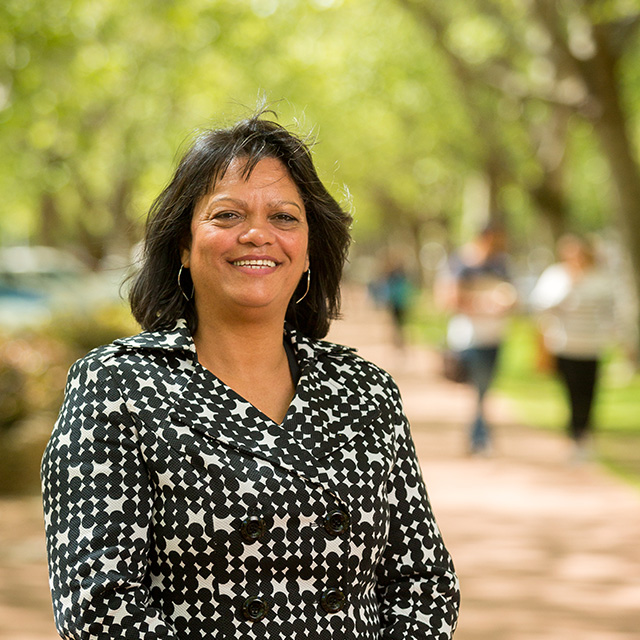
You obtained your doctorate from Stellenbosch University (SU) in 2014. Tell us about your academic background.
After I matriculated from Crestway Secondary School in the late 1970s, I studied at the University of Cape Town. In the four years I spent there, I focused on my BA degree majoring in Afrikaans-Dutch and Sociology, followed by a diploma in Higher Education. My political awakening in the southern suburbs of Cape Town certainly influenced my decision rather to apply for a permit instead of enrolling at the University of the Western Cape. Those were extraordinary times characterised by protest action and exclusion. My generation certainly did not have the full experience of student life; you simply obtained your qualification and got out of there. In my PhD dissertation, the educational philosophy of Paulo Freire, the South American educationalist, served as theoretical point of departure for my research. He developed from educationalist into a world-renowned philosopher in education.
Who or what inspires you?
I have many sources of inspiration. Apart from my parents, family and both primary and secondary school teachers, our principal at Crestway, Mr Yusef da Costa, was particularly inspiring. I doubt whether I would have pursued tertiary studies without his encouragement. During my years as a student, I was also strongly influenced by iconic women such as Fatima Meer, Winnie Mandela and Theresa Soloman. Broadly speaking, my introduction to Paulo Freire certainly fuelled my inspiration in the field of education.
Your late husband, Prof Russel Botman, who passed away in June 2014, believed in the next generation’s potential as thought leaders for the future, as well as in equitable access to higher education. Do you share this vision?
Russel was my closest conversation partner. Our vision for education and pedagogy is strongly linked to the future and based on hope as an educational issue. So, if we believe that education addresses the present with a view to the future, the next generation is of paramount importance. The realisation that man and specifically educators are in a sense “unfinished”, continuously learning and developing, necessarily implies creating opportunities for the youth to develop into thought leaders. We must allow their leadership to take us further.
How do you build on Prof Botman’s legacy?
Russel has a rich legacy, which we must preserve at all costs. I call him “the nominee”. He never believed in applying for anything without having been nominated, possibly because he had a “calling” as minister of religion. As a result, he was nominated for nearly everything he embarked upon. His legacy is preserved and made available in various ways. His books, writings, documents and manuscripts were donated to SU. The Russel Botman collection was recently launched by the Beyers Naudé Centre archive and is available for research. Then there is a memorial book. The Russel Botman bursary fund is another aspect of his legacy that demands a lot of our time.
What is your hope for the next generation?
Today’s youth have the enormous task of building a society that is better than, and different from, the one we used to have. I believe we must support them and afford them the opportunity to create something new, even if we disagree. My message to the youth is: Work towards a greater goal. Give it your all and embrace every opportunity for development and fulfilment. Be part of the project of creating opportunities for others, better opportunities than those you received.
- By Ilse Arendse -